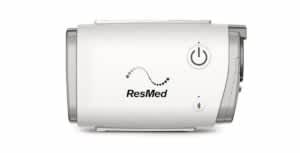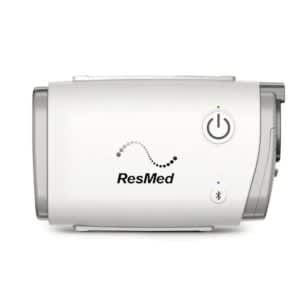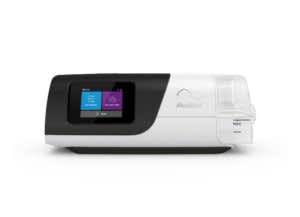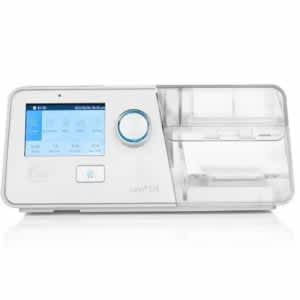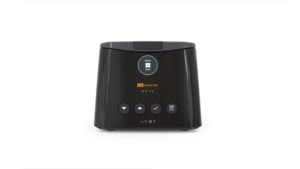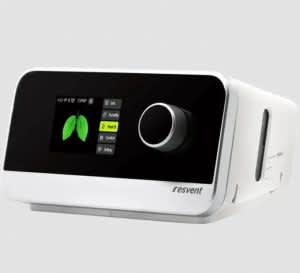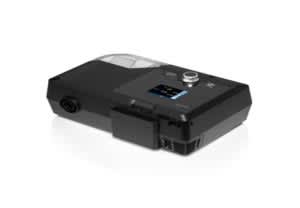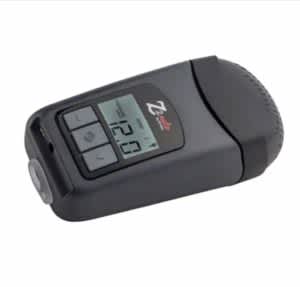When you buy through our links, we may earn a commission. Products or services may be offered by an affiliated entity. Learn more.
Best CPAP Travel Batteries
How to Make the Right Pick
Continuous positive airway pressure (CPAP) machines are often prescribed for obstructive sleep apnea (OSA), a sleep disorder in which a person frequently stops breathing for brief intervals during sleep. CPAP therapy can normalize sleep patterns, lower blood pressure, and reduce daytime sleepiness in people with OSA. Symptoms can return, though, after skipping just one night of therapy. This is why it’s important to maintain consistent CPAP therapy when away from home.
Portable CPAP batteries are primarily meant to power a range of travel CPAP machines, but they’re also compatible with certain standard CPAP machines. Travel batteries are convenient when camping or in places with limited electrical outlets. Many models are Federal Aviation Administration (FAA)-approved for air travel.
We cover everything you need to know about portable CPAP batteries, including how they differ from integrated CPAP batteries. We also share important air travel guidelines for CPAP machines and batteries.
Travel CPAP Batteries Vs. Integrated CPAP Batteries
Integrated CPAP batteries are built-in batteries intended to be used as back-up for standard CPAP machines in the event of a power outage. In contrast, travel CPAP batteries are external batteries designed specifically with travel in mind. Although integrated batteries are not frequently marketed for traveling, most could be used for travel, too.
A portable CPAP battery is designed to power a wider range of standard and travel CPAP machines when away from home.
How to Choose a CPAP Travel Battery
A CPAP travel battery is an investment in your health, and there are many factors to consider when choosing a model. Machine compatibility is essential, but durability, charge capacity, and run time are also crucial. Pricing and warranty may also be top concerns for some shoppers, since insurance doesn’t usually cover the cost of CPAP batteries.
Focusing on these factors along with your unique needs can help you find a suitable CPAP travel battery model.
Price
Price is an important consideration if you’re on a budget. CPAP travel batteries cost anywhere from $150 to $600. Unlike essential CPAP supplies, travel batteries aren’t usually covered by insurance. Batteries with longer lifespans and run times are usually more expensive. Given that they are an investment, it’s important to do thorough research before making a purchase.
Compatibility
Not all portable CPAP batteries work with every CPAP machine, and an incompatible battery can actually damage your machine. First, check to see if your CPAP machine brand makes a compatible battery. If it doesn’t, manufacturers and retailers of CPAP travel batteries usually list compatible machines on their websites.
Battery Lifespan
As with any product, some portable CPAP batteries last longer than others. Manufacturers indicate a battery’s lifespan by its number of charge cycles. Most competitive models today have over 500 charge cycles.
Charge Time
Portable batteries also vary when it comes to charge time. Some models charge quickly, while others take longer to reach full capacity. A short charge time is valuable since electric outlets can be unpredictable when traveling. A fully charged battery ensures that your therapy continues uninterrupted. Retailers and manufacturers list a battery’s charge time, which ranges from a few hours to 10 to 12 hours.
Charge Capacity
Charge capacity refers to how much power a battery can store and is measured in milliamps per hour (mAH). The higher the capacity, the longer a battery will operate. You’ll want a higher charge capacity to maximize your machine’s run time. Temperature, altitude, and a battery’s age can affect charge capacity.
Run Time
Run time is a top consideration since it determines how long your machine will operate. Your therapy could abruptly stop while you’re asleep if the battery’s run time is too short. Most fully charged batteries last for 10 to 12 hours, which safely covers a solid night’s sleep. Some models can power your device for up to three nights, but this is pretty uncommon. Batteries with extra long run times are typically more expensive.
Keep in mind that certain CPAP machine models, humidifiers, and higher pressure settings can drain battery power more quickly. Make sure to check the manufacturer’s listed run time for a battery, especially if you require high pressure or regularly use a humidifier.
Durability
A well-made battery should withstand a reasonable amount of wear and tear, but some are built sturdier than others. The number of charge cycles is a good indication of a battery’s durability.
While CPAP batteries aren’t exactly fragile, it’s still best to handle them with care. Clanking in your car trunk or falling on rocky terrain can shorten a battery’s lifespan. Avoid extreme temperatures and altitudes, if possible.
Warranty
CPAP batteries aren’t cheap, but a warranty helps reassure customers. Most portable batteries are backed by a 1-year warranty that covers manufacturing defects. Warranties don’t cover damage caused by abuse or neglect. Customers can find warranty details on a retailer’s or manufacturer’s website.
Frequently Asked Questions
How do you pack a CPAP machine and batteries for air travel?
CPAP users should familiarize themselves with their airline’s rules regarding CPAP machines before traveling. Many CPAP machines are FAA-approved for in-flight use. They are classified as medical equipment, so they don’t count as carry-on items. This means you can bring the device on board in its own travel case or store it inside your usual carry-on bag. We don’t recommend storing a CPAP device in luggage you’re going to check, since that increases the chances of loss or damage.
Lithium ion batteries aren’t permitted in checked luggage, so you’ll need to store your CPAP battery in your carry-on bag. Contact your airline in advance to make sure your battery model is flight-approved. It’s also a good idea to have a doctor’s prescription and a copy of FAA-compliance for your machine when boarding a plane.
Compared to air travel, packing for a road trip is less complicated. A backup battery can be handy when camping off grid. An inverter is also useful when power outlets are scarce, since it enables you to charge your portable battery in a DC car outlet.
Are CPAP batteries safe for air travel
?Most lithium ion CPAP batteries are FAA-compliant, which means they are federally approved for air travel. Batteries aren’t allowed in checked bags, so they must be stowed in your carry-on bag. Battery terminals need to be covered and stored safely away from other metal items.
Always confirm with the airline that your battery is flight-approved, as some CPAP batteries aren’t lithium ion. FAA and Transportation Security Administration (TSA) compliance information can be found on the battery’s packaging or on the manufacturer’s website. You can also reach out to your airline in advance for confirmation.
Are CPAP batteries allowed in a checked bag or as a carry-on?
Lithium ion CPAP batteries are not permitted in checked bags and must be stored in your carry-on.

Still have questions? Ask our community!
Join our Sleep Care Community — a trusted hub of product specialists, sleep health professionals, and people just like you. Whether you’re searching for the perfect mattress or need expert sleep advice, we’ve got you covered. Get personalized guidance from the experts who know sleep best.

